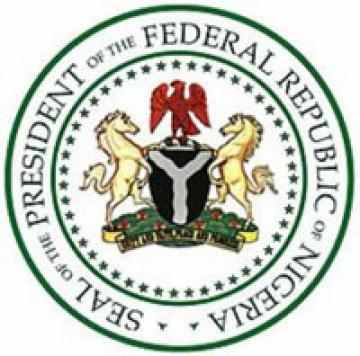FG has signed the 2011 Financial Reporting Council Bill into law – Aganga
Minister of Trade and Investment, Dr. Olusegun Aganga, has disclosed that the Federal Government has signed the 2011 Financial Reporting Council Bill into law, saying the implementation of this law would put Nigeria on the part of adopting the best organised approach to regulation of financial reporting as it is currently practiced in the United Kingdom, Australia, Malaysia and the United States of America.
The Minister said this at a one-day workshop titled “Attracting Investments into Nigeria” organised by the Federal Ministry of Trade and Investment and moderated by Mckinsey, a global Consultancy firm with experts from Europe and South Africa.
The aim of the workshop was to prepare relevant stakeholders on the wider implications of the focus of the newly created Ministry of trade and Investment.
Aganga said the present administration was determined to restructure and reform the economy of Nigeria; create necessary macroeconomic and regulatory environment as a way of attracting Foreign Direct Investment (FDI) and encourage ideas that can lead to the realization of the full potentials of the country’s national resources.
He said the President has already started taking steps to ensure that these objectives are realised.
Aganga recalled that the Federal Executive Council had on July 28 last year unveiled the Road Map for Nigeria’s adoption of International Financial Reporting Standards (IFRS) effective January 1, 2012 in order to enhance the country’s national dedication to reliable financial information and audit quality assurance.
He pointed out that the Legislation was meant not only to create the enabling environment for the implementation of the IFRS and to guarantee credible financial reporting regime in both public and private sector entities in Nigeria but also for wealth-creation and economic transformation.
He noted that other benefits that will accrue from the application of the provisions of the Financial Reporting Council Act include: increase in Foreign Direct Investment and assurance of easier access to external capital, adding that the platform for economic integration, harmonisation and internationalisation are legal reforms that are capable of re-assuring the markets and the public at large that corporate reporting and governance frameworks are sufficiently robust.
The Bill would also enhance local and foreign Investors’ confidence in the quality assurance systems of financial reporting in public and private sector entities in Nigeria as well as create more meaningful and decision enhancing information from financial statements issued in Nigeria because the accounting, actuarial, valuation and auditing standards, that are used in the preparation of these statements shall be issued and regulated by this Financial Reporting Council.
The provision, he said, would also lead to job creation as graduates of accounting and related fields from the country’ tertiary institutions would become internationally acceptable and employable.
He explained that the FRC is a unified independent regulatory body for Accounting, Auditing, Actuarial, Valuation and Corporate Governance, adding that compliance monitoring in these areas would now be addressed from the platform of professionalism and legislation.
He said the Public Sector financial management reform is hinged on the development of Public Sector Accounting Standards which shall be issued by the Financial Reporting Council.
The Workshop had in attendance, Arc. Musa Mohammed Sada, the Minister of Mines and Steel Development, Dr. Akinwunmi Adesina, the Minister of Agriculture and Natural Resources, Dr. Samuel Ortom, the Minister of State for Trade and Investment, Dr. Abubakar Mohammad, Permanent Secretary in the Ministry of Trade and Investment as well as some Directors of the Ministry.
The team of facilitators was from Mckinsey and company and was led by Ronaldo Balsinde.
Independent








